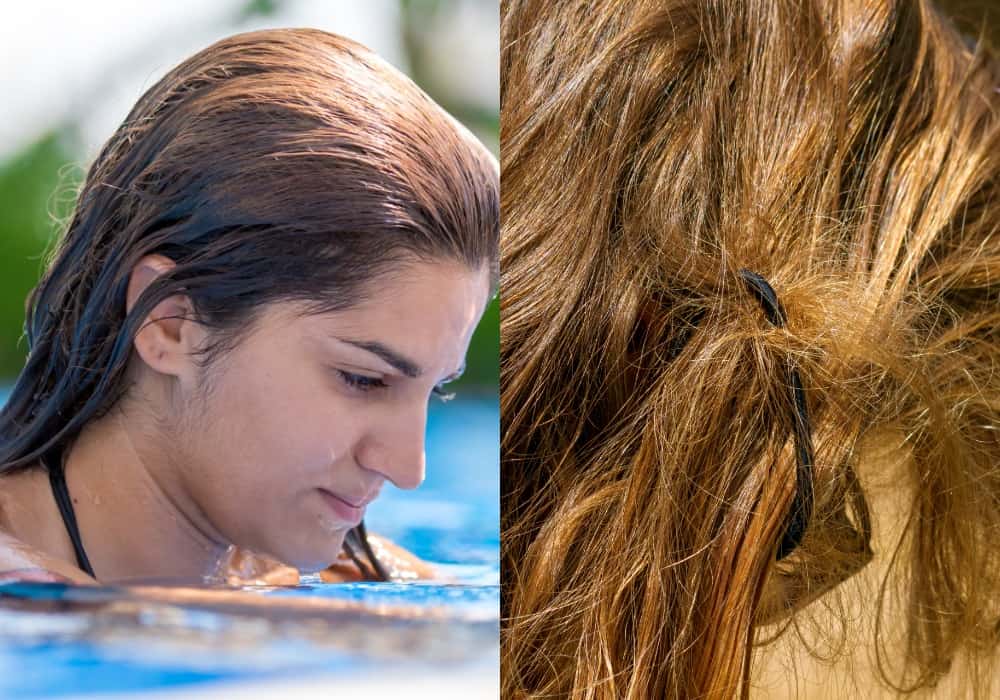Hair loss can be frustrating, but it can be even more frustrating when accompanied by another medical condition, like an autoimmune disease.
However, today, there are medications, like fluocinonide for hair loss, in the market that specifically act to reverse the effects of autoimmune disorders. When used consistently over time, fluocinonide can stop or even reverse hair loss associated with autoimmune disorders.
What Is Fluocinonide Used For?

Fluocinonide is a common, strong topical cream used to treat skin conditions. These conditions include eczema, rash, and allergies. Doctors also prescribe fluocinonide to prevent hair loss in anyone suffering from this condition due to autoimmune disorders, like alopecia or lupus.
Fluocinonide is in the strong corticosteroid category. Corticosteroids work to mimic naturally-occurring hormones in the body. However, when introduced into the body in extreme amounts, corticosteroids can suppress one’s immune system. Suppressing the immune system helps the body fight certain autoimmune disorders where cells attack the body.
Alopecia is one of those autoimmune conditions. Alopecia is a medical condition where the immune system attacks the hair follicles, causing hair loss. Alopecia typically happens in patches (alopecia areata), making it less noticeable to others. However, in extreme cases, those patches can start to appear next to each other, making the hair loss much more noticeable and bothersome.
Lupus is another autoimmune disorder that can cause hair loss. Lupus can affect several parts of the body, including the face and scalp. When lupus causes inflammation on the scalp, it can create issues for hair ranging from thinning out to falling out in clumps. Lupus can also cause breakage around the hairline, causing hair to become fragile and break off.
RELATED BEST 10 ON AMAZON:
| IMAGE | TITLE | TRENDS | SEE MORE |
|---|
 | Sports Research Biotin Supplement with Organic Coconut Oil, 5,000mcg, 120 Veggie Softgel Caps | 417625 | MORE VIEW |
|---|
 | MG217 Psoriasis Scalp Solutions, Shampoo + Conditioner, 8 Ounce (5603) | 28315.5 | MORE VIEW |
|---|
 | KAMINOMOTO Hair Growth Tonic Higher Strength (Silver) Japan BestSeller 150ml for Hair Loss - New Formula and | 38.7 | MORE VIEW |
|---|
 | Propidren by HairGenics - DHT Blocker with Saw Palmetto To Prevent Hair Loss and Stimulate Hair Follicles to Stop Hair Los... | 31420.1 | MORE VIEW |
|---|
 | Benadryl Extra Strength Anti-Itch Gel, 2 Percentage Diphenhydramine HCI Topical Analgesic & Histamine Blocker for Relief o... | 142738 | MORE VIEW |
|---|
 | Nizoral Anti-Dandruff Shampoo, Basic, Fresh, 7 Fl Oz | 340625 | MORE VIEW |
|---|
 | Sports Research Triple Strength Omega 3 Fish Oil - Burpless Fish Oil Supplement w/ EPA & DHA Fatty Acids from Wild Alaskan... | 166996 | MORE VIEW |
|---|
 | PURA D'OR Hair Thinning Therapy Energizing Scalp Serum Revitalizer (4oz) with Argan Oil, Biotin, Caffeine, Stem Cell, Cata... | 12259.8 | MORE VIEW |
|---|
 | Sports Research Biotin Supplement with Organic Coconut Oil, 5,000mcg, 120 Veggie Softgel Caps | 417625 | MORE VIEW |
|---|
 | Nature’s Bounty Biotin, Supports Healthy Hair, Skin and Nails, 10,000 mcg, Rapid Release Softgels, 120 Ct | 381382 | MORE VIEW |
|---|
 | Nizoral Anti-Dandruff Shampoo, Basic, Fresh, 7 Fl Oz | 340625 | MORE VIEW |
|---|
 | Nature's Bounty Hair, Skin & Nails Rapid Release Softgels, Argan-Infused Vitamin Supplement with Biotin and Hyaluronic Aci... | 213021 | MORE VIEW |
|---|
 | Dr. Formulated Probiotics for Women & Prebiotics, 50 Billion CFU for Women’s Daily Digestive Vaginal & Immune Health, Gard... | 201517 | MORE VIEW |
|---|
 | Sports Research Triple Strength Omega 3 Fish Oil - Burpless Fish Oil Supplement w/ EPA & DHA Fatty Acids from Wild Alaskan... | 166996 | MORE VIEW |
|---|
 | Vital Vitamins Multi Collagen Complex - Type I, II, III, V, X, Grass Fed, Non-GMO, 150 Capsules | 148046 | MORE VIEW |
|---|
 | Nature's Bounty Hair, Skin & Nails with Biotin and Collagen, Citrus-Flavored Gummies Vitamin Supplement, Supports Hair, Sk... | 147285 | MORE VIEW |
|---|
 | Benadryl Extra Strength Anti-Itch Gel, 2 Percentage Diphenhydramine HCI Topical Analgesic & Histamine Blocker for Relief o... | 142738 | MORE VIEW |
|---|
 | Lotrimin Ultra 1 Week Athlete's Foot Treatment, Prescription Strength Butenafine Hydrochloride 1%, Cures Most Athlete’s Fo... | 101545 | MORE VIEW |
|---|
Tips: "Amazon, Amazon Prime, the Amazon logo and Amazon Prime logo are trademarks of Amazon.com, Inc. or its affiliates". AS AN AMAZON ASSOCIATE, WE EARN AFFILIATE COMMISSIONS FROM QUALIFYING PURCHASES.





















